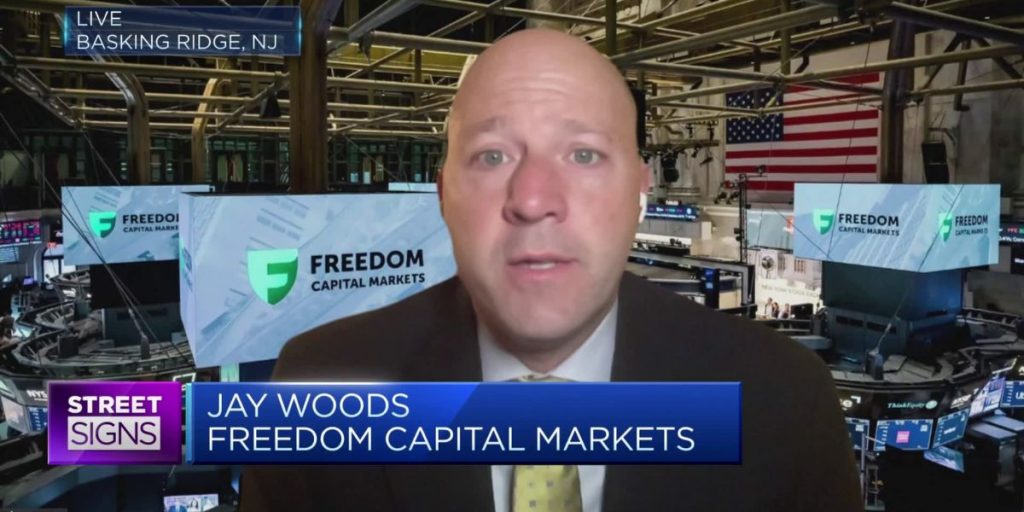Tesla shares plunged nearly 6% on Tuesday after CEO Elon Musk announced job layoffs for an anticipated 500 Supercharger team members.
The stock closed at $183.28 and is currently down 26% this year.
According to The Information, Musk issued an email to Tesla managers overnight announcing the departure of senior officials, including Rebecca Tinucci, Senior Director of EV Charging, and Daniel Ho, Director of Vehicle Programs. In the email, Musk also voiced dissatisfaction with Tesla management’s failure to reduce the company’s workforce faster quickly at his request.
Several individuals whose positions were eliminated, as well as one who is still working at Tesla in California, confirmed to CNBC the details of the ongoing reorganization, requesting anonymity to discuss sensitive subjects. Other laid-off Tesla employees spoke out publicly against the company’s decision to reduce the Supercharger crew size.
In reducing that group, Tesla indicated that it is slowing the expansion of its Supercharger network in the United States. Tesla has partnered with Ford, GM, and other industry giants to develop automobiles compatible with the Tesla NACS (North American Charging Standard) and allow their consumers to utilize Tesla charging stations.

The layoffs are part of Tesla’s major cost-cutting measures, which follow a 9% reduction in revenue in the first quarter of this year, the largest year-over-year decline since 2012. Profits were cut in half in the first three months of 2024 as Tesla discounted cars and offered incentives to increase demand.
According to current and former employees, Tesla began cutting off some personnel in January, with broader cuts ramping up this month. They stated that other colleagues who believed their employment were secure received termination notices on Friday and Tuesday.
Tesla provided no warning to investors about a reversal in plans to expand charging infrastructure. Nor did the company notify some charging network partners, including small and medium-sized businesses that install and maintain Tesla EV charging equipment in strategic locations around the United States.
Andres Pinter, co-CEO of Bullet EV, the Supercharger network contractor, told CNBC, “My team woke up to a sharp kick in the pants this morning.” Emails addressed to approximately twenty distinct charger construction contacts were bounced with the same autoreply reading, ‘This email address is no longer valid. Any subsequent emails sent to this address will not be received.
Pinter believes “it will take years for the other charger networks to catch up,” but Tesla’s abandonment of a near-term strategy to aggressively grow in the United States opens the door for other companies.
On X, Musk stated that “Tesla still plans to grow the Supercharger network, just at a slower pace for new locations and more focus on 100% uptime and expansion of existing locations.”
Tesla earns money from environmental credits and charging session fees, and it already operates around one-third of all public electric vehicle charging stations in the United States.
According to estimates from the non-profit International Council on Clean Transportation, transportation accounts for 25% of global human activity-related carbon emissions. While Musk has recently discussed Tesla’s AI ambitions and efforts to build self-driving technology, the firm reiterated in its annual report released this week that its purpose is to “accelerate the world’s transition to sustainable energy.”
Tesla’s shares fell on Tuesday after rising 15% on Monday, the biggest trading day of the year. Musk’s visit to China resulted in a contract with Baidu for mapping technology, potentially powering Tesla’s self-driving software in the country.
Tesla has long promised, but has yet to deploy autonomous vehicles.
Junheng Li, founder of JL Warren Capital, stated in a message to investors this week that there are too many “missing critical details,” to support the advances on Monday. “We believe that the take rate and incremental revenue from the localized FSD- assuming the similar level of autonomy as TSLA’s latest v12 – will be significantly lower in China than in the US.”
Xpeng, Nio, and other EV manufacturers presently provide level 2 systems as incentives to consumers in China.